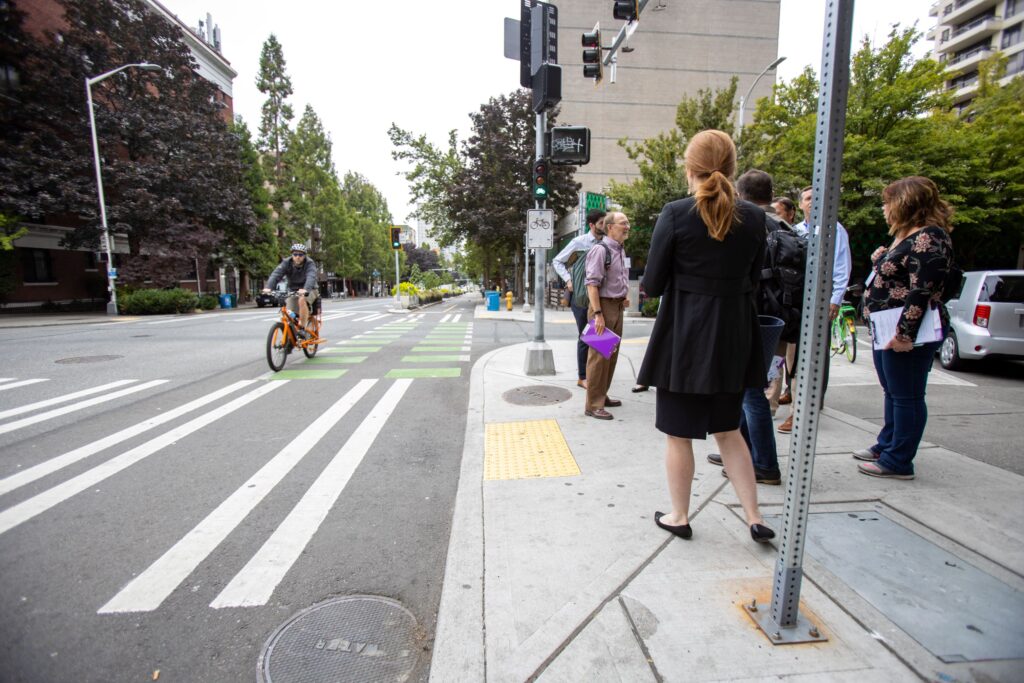
By Katie Ward
Since launching in 2016, the Urban Freight Lab has been at the forefront of testing innovative solutions within Seattle’s urban environment. With the support of the City of Seattle Department of Transportation (SDOT) and private sector members spanning retail, technology, manufacturing, real estate, and shipping, the Urban Freight Lab (UFL) has led groundbreaking initiatives aimed at addressing curb management, congestion and improving safety and equity on city streets. From installing underground sensor technology in parking locations to spearheading the Seattle Neighborhood Delivery Hub, Seattle has served as the UFL’s testing ground.
Now, UFL is breaking new ground and extending its impact beyond Seattle.
A strategic partnership between SDOT, the Open Mobility Foundation (OMF), and the UFL has been awarded a $2 million grant from the U.S. Department of Transportation’s SMART (Strengthening Mobility and Revolutionizing Transportation) program. This funding will launch the Last-Mile Freight Curb Access Program, an initiative designed to digitize the critical last mile of urban goods delivery. Leveraging sensor-based technology solutions, the program aims to expedite commercial deliveries, improve safety and reduce vehicle emissions, fostering more efficient and sustainable urban logistics operations.
Building on this momentum, UFL is now joining OMF and the eight SMART grant recipient cities to establish the Smart Curb Collaborative. The collaborative brings together the cities of Seattle, Los Angeles, Miami-Dade County, Minneapolis, Philadelphia, Portland, San Francisco and San Jose.
“The Smart Curb Collaborative represents a significant milestone in moving toward smarter, more efficient urban logistics, and we are looking forward to contributing our expertise.”
— Kelly Rula, UFL Director
As the collaborative’s research partner, the UFL will lead a comprehensive comparative analysis, leveraging its expertise in urban freight research to compare infrastructure, policy frameworks and demand across the member cities. This analysis will provide actionable insights aimed at advancing curb management practices on a global scale.
“UFL is thrilled to expand our reach beyond Seattle and collaborate with other U.S. cities to address these pressing urban logistics challenges,” says UFL Director Kelly Rula. “The Smart Curb Collaborative represents a significant milestone in moving toward smarter, more efficient urban logistics, and we are looking forward to contributing our expertise.”
Echoing Rula’s enthusiasm, Andrew Glass Hastings, executive director of OMF, also emphasizes the strategic importance of UFL’s involvement.
“The UFL’s rich history of innovation and expertise in urban freight research will play a pivotal role in analyzing curb infrastructure, policy frameworks and demand dynamics across the collaborative, informing collective endeavors and delivering impactful outcomes,” he said.